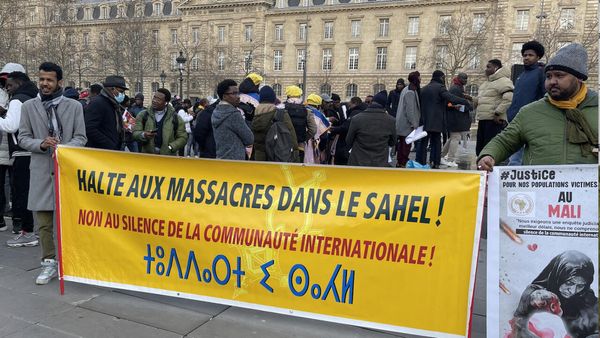America’s exit from Afghanistan was going to come eventually. Presidents Barack Obama and Donald Trump both declared their intentions to extricate the U.S. from its “forever war.” The American public by and large ratified this position.
In the end, though, both former presidents balked when confronted by pushback from the Pentagon. Then, in April 2021, President Joe Biden declared that he was the fourth president to preside over the war in Afghanistan, and refused to “pass this responsibility on to a fifth.”
Unfortunately for Biden, his execution of the withdrawal, which wrapped up at the end of August 2021, was shambolic. Scenes of Kabul International Airport being mobbed by thousands of Afghans desperately fleeing the Taliban only added to the misery.
A single horrific suicide bombing killed more than 100 people, including 13 American soldiers — the last Americans to die in the long, futile fight to bring democracy to Afghanistan. All 13 were posthumously awarded the Congressional Gold Medal.
This debacle wasn’t an inevitability, but rather the result of an unnecessarily hasty retreat that felt more politically calculated than methodically thought out. The current administration seemed to make a point of withdrawing American troops by an arbitrary, and much-publicized deadline prior to Sept. 11, which marked the 20th anniversary of the worst act of terrorism in the nation’s history. American military assets — $7 billion worth — were left behind during the mad scramble.
The retreat emboldened the Taliban and crushed the morale of the Afghan army, which crumbled with remarkable speed. It was a fitting capstone to have the same regime that America ousted two decades earlier return to power without skipping a beat. The Taliban claimed to be reborn with a more modernized viewpoint, though hardly anyone took such claims seriously.
That skepticism was vindicated when it became clear that the Taliban’s new incarnation was effectively as bad as the original. In May, the Taliban’s Ministry for the Promotion of Virtue and Prevention of Vice issued an order compelling women to to wear clothing from head to toe in public, with only their eyes permitted to be visible. Worst of all, in an about-face that should arouse the international community’s revulsion, young women have been forbidden from attending secondary school beyond the sixth grade.
Education is one of the keys to power, which is why the Taliban cannot tolerate educated women. But it is an especially cruel twist of fate that, after having once been allowed to study openly, the schoolhouse gate is now being closed shut.
Underground schools have emerged for young women who merely want to learn, but this is no substitute for a proper education. Besides, under Taliban rule, it’s dangerous to dream. In 2012, Nobel Peace Prize Laureate Malala Yousafzai was a schoolgirl when she was nearly killed after a Taliban assassination attempt over her pro-education advocacy.
Afghan women who lived through the original Taliban rule are now returned, once more, to a state of powerlessness. For those who came of age during the American occupation, it must be startling to witness how quickly a society can relapse into despotism. After being abandoned by America, a feeling of hopelessness will likely set in. Who else is going to come to the rescue? The question seems to answer itself.
In 2002, Hamid Karzai, the first president of democratic Afghanistan, attended George W. Bush’s State of the Union address. He was flanked by Dr. Sima Samar, who was the minister of a newly created agency within the Afghan government — the Ministry of Women’s Affairs. Agency officials were around long enough to see millions of Afghan women educated and participating in every professional field the country has to offer.
But, seeing no reason to keep it around, the Taliban disbanded the agency immediately upon reassuming control.
It’s too late for Biden to redo America’s withdrawal from Afghanistan but it isn’t too late to make amends for the abandonment of ordinary Afghans, particularly women.
Speaking before the United Nations in September 2021, the president pledged that the U.S. would hold the Taliban accountable “when it comes to respecting universal human rights.” The Taliban have responded by thumbing their nose at the democratic world.
While the international community dithers, schools for girls that were once a testament to the future hopes of Afghanistan will sit vacant — as empty as a broken promise.
____
ABOUT THE WRITER
Tyler Michals is a practicing attorney in Chicago.







